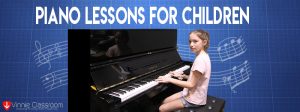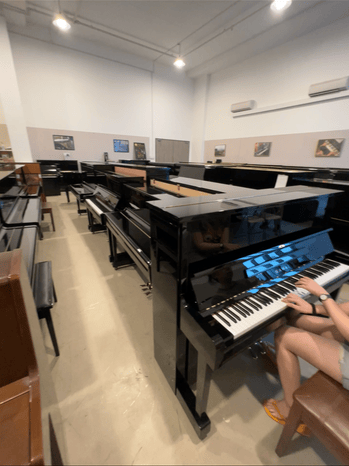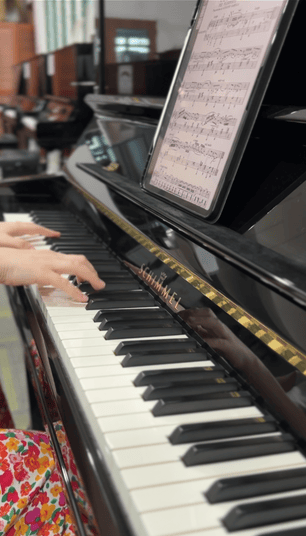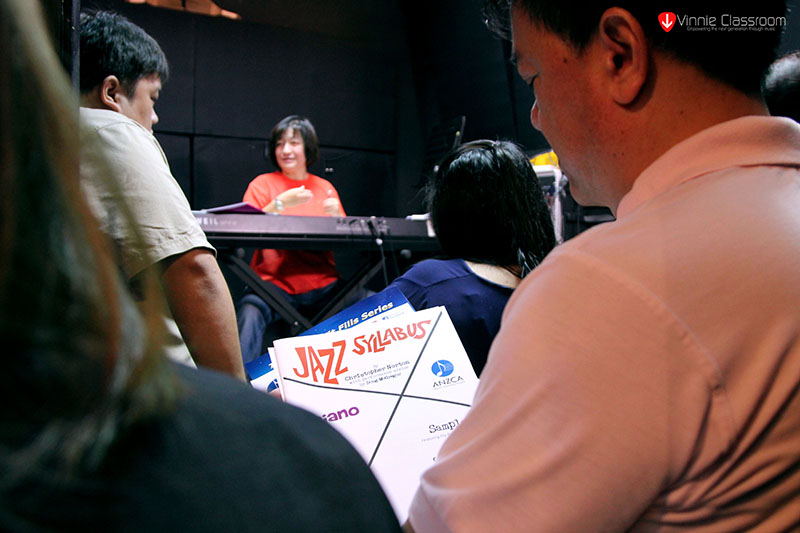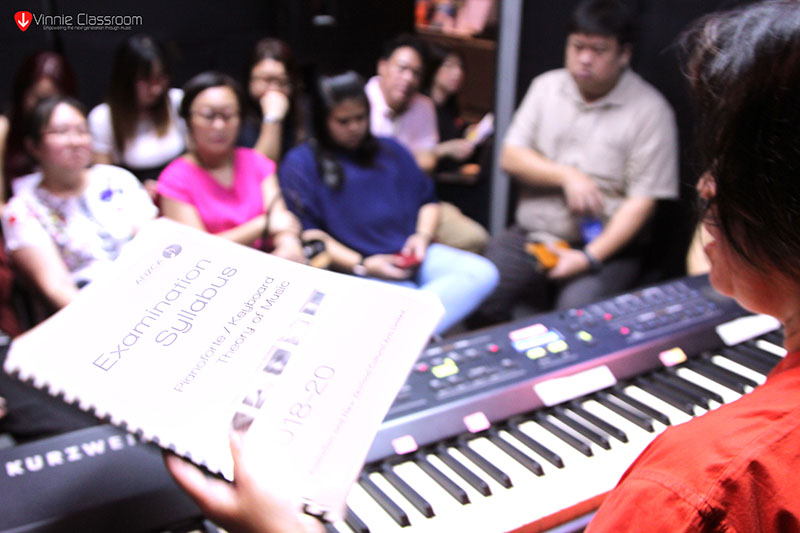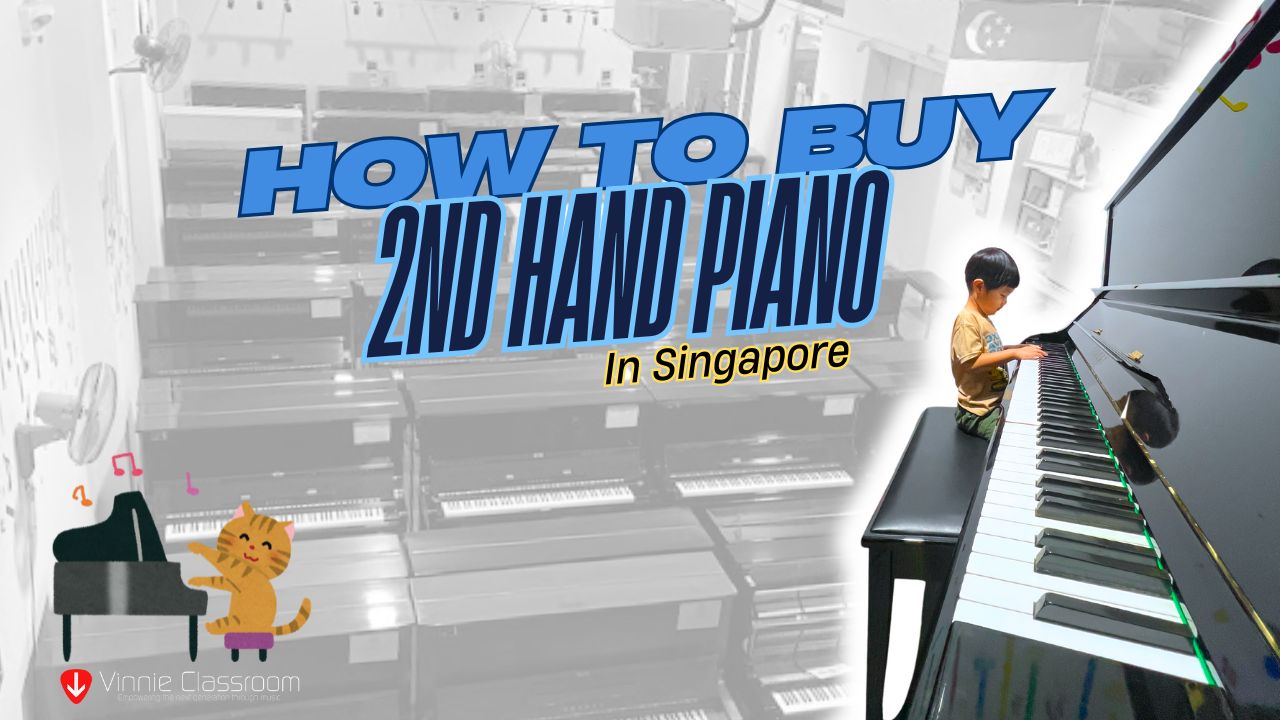
All about buying a second-hand piano in Singapore

Buying a second-hand piano in Singapore for your child’s piano lessons can be quite a daunting task! Unlike first-hand piano shops, which are often located in sleek shopping malls, second-hand piano stores tend to have a less polished appearance. Some may look dim and uninviting, with sales staff casually dressed in worn-out t-shirts, shorts, and slippers. For many families, this might seem like a red flag, leading them to lean towards purchasing a brand-new piano for peace of mind. Recently, we visited five different second-hand piano shops and gained valuable insights from the experience. Now, we’re confident in sharing what to look out for when buying a second-hand piano in Singapore.
3 unique second-hand piano shop in Singapore
Before we share what we have learned from our shopping trip, here are the Google map links to the 3 second-hand piano shops we have visited.
(not in any order, these are not sponsored listings)
Piano lessons can help you shop for the right second-hand piano!
Signing up for piano lessons in Singapore can help you make better purchasing decisions. Piano teachers are the best people to seek advice when considering buying a piano for practicing after piano lessons!
We are a music school offering guitar lessons at Upper Thomson Road, Singapore. Signing up for piano lessons with us means learning from a team with over 10 years of experience running a successful music school in Singapore. Over the years, we have refined our teaching methods to ensure they are engaging, effective, and tailored to suit students of all ages and skill levels. Our commitment to excellence goes beyond lessons—we organize annual recitals! It provides our piano students with the opportunity to showcase their progress, build confidence, and experience the joy of performing.
Pricing: Do your homework first!
Second-hand piano prices can be surprising, often still costing several thousand dollars. For parents with no experience, choosing one can be tough since pianos look similar. Researching new piano prices beforehand can help. Remember, price alone doesn’t tell the full story—here are the factors that affect a piano’s cost.
- Brand – Typically Japanese are cheaper than European brands.
- Grade – Pianos are often made with a wide range of quality to target players of specific grades.
- Orientation – While grand and baby grand pianos may look impressive, they are significantly more expensive than upright pianos. However, an upright piano can still deliver excellent sound quality.
- Manufacturing country – Just like cars, Japanese-made pianos will cost more than Indonesia-made pianos of the same brand and model
Pianos sound different in various environments
Prepare your playing materials
Ask about the condition
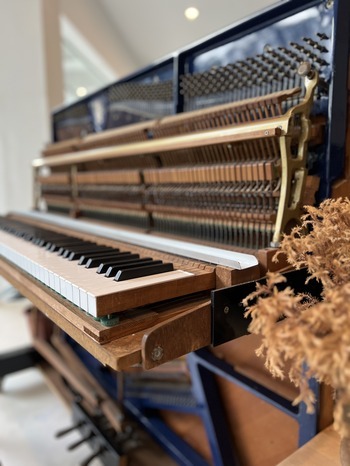
The condition of pianos in second-hand shops can vary widely, ranging from models just a few years old to vintage pieces from the 1970s. These pianos may have been previously owned and used locally or imported from countries like Japan, where piano culture is deeply rooted. Interestingly, most second-hand piano shops are run by expert piano tuners and repair technicians. Their skill and craftsmanship allow them to restore pianos to near-brand-new condition, ensuring that even older instruments can deliver excellent sound and performance. This expertise adds tremendous value to the second-hand piano market. Of course, you are free to choose from any of their collection!
Find out more about aftersales support
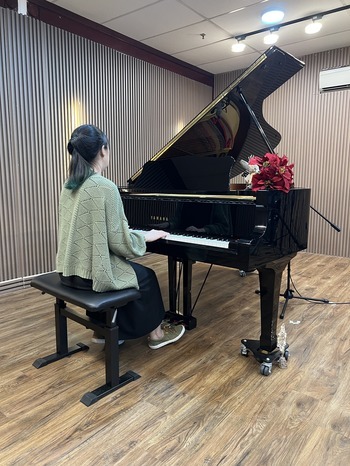
After-sales support is key when buying a second-hand piano. Reputable shops often include delivery, tuning, and minor adjustments, with some offering limited warranties. Run by skilled technicians, these shops can also provide ongoing maintenance, ensuring your piano remains in great condition.
